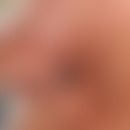Synonym(e)
Definition
Durch photochemische (kurzwelliges Licht, UV-Strahlung) Veränderung eines lichtempfindlichen Prohaptens zum Hapten und über dessen Verbindung mit einem Protein in der Haut entstandenes Antigen. Das Prohapten kann exogen oder endogen in die Haut gelangen. Medikamente, Kosmetika und Körperpflegemittel sind die bekanntesten Photoallergene (s. Tabelle).
- Zur Identifizierung von Photokontaktallergenen bei einer Photosensibilisierung wird ein Photopatchtest durchgeführt.
- Systemische Photosensibilisatoren (s. Tab.) müssen über eine systemische Photoprovokation erfasst werden.
LiteraturFür Zugriff auf PubMed Studien mit nur einem Klick empfehlen wir  Kopernio
Kopernio
 Kopernio
Kopernio- Campi P, Pichler WJ (2003) Quinolone hypersensitivity. Curr Opin Allergy Clin Immunol 3: 275-281
- Epstein JH (1999) Phototoxicity and photoallergy. Semin Cutan Med Surg 18: 274-284
- Ferguson J (2002) Photosensitivity due to drugs. Photodermatol Photoimmunol Photomed 18: 262-269
- Fujita H et al. (1965) Five cases which showed diffuse erythema and edematous papules possibly caused by saccharin, Acta Derm (Kyoto) 60: 303
- Gordon HH (1972) Allergic reaction to saccharin. Am J Obstet Gynecol 113: 1145
- Hölzle E et al. (1991) Photopatch testing: the five-year experience of the German, Austrian, and Swiss photopatch test group. J Am Acad Dermatol 25: 59-68
-
Lugović-Mihić L et al. (2017) Drug-Induced Photosensitivity - a Continuing Diagnostic Challenge. Acta Clin Croat 56:277-283.
- Moore DE (2002) Drug-induced cutaneous photosensitivity: incidence, mechanism, prevention and management. Drug Saf 25: 345-372
- Schauder S (2003) Solar urticaria. Hautarzt 54: 952-958
- Scheman A (2000) Adverse reactions to cosmetic ingredients. Dermatol Clin 18: 685-698
- Schempp CM et al. (2002) Plant-induced toxic and allergic dermatitis (phytodermatitis). Hautarzt 53: 93-97
- Taub SJ (1972) Untoward reactions to saccharin. Eye Ear Nose Throat Mon 51: 405-406
Tabellen
Photoallergisch wirksame Substanzen (Auswahl)
|
Hauptgruppen |
Wirkstoffe/Wirkstoffklassen |
|
Desinfizienzien |
Bithionol |
|
Buclosamid |
|
|
Carbanilide |
|
|
Dibromsalicylanilid |
|
|
Dichlorophen |
|
|
Hexachlorophen |
|
|
Pentichlor |
|
|
Tetrabromsalicylanilid |
|
|
Tetrachlorsalicylanilid |
|
|
Tribromsalicylanilid |
|
|
|
|
|
Antidiabetika |
Tolbutamid |
|
Glibenclamid |
|
|
Chlorpropamid |
|
|
Carbutamid |
|
|
|
|
|
Antiinfektiosa |
Doxycyclin |
|
Sulfanilamid |
|
|
Sulfathiazol |
|
|
Sulfisoxazol |
|
|
Sulfamethoxypyridazin |
|
|
Sulfadimethoxin |
|
|
|
|
|
Antihypertensiva/Diuretika |
Chlorthalidon |
|
Chlorothiazid |
|
|
Hydrochlorothiazid |
|
|
Quinethazon |
|
|
|
|
|
Sonstige
|
Amantadin |
|
Amitriptylin |
|
|
Azathioprin |
|
|
Benzophenone |
|
|
Cadmiumsulfid |
|
|
Carbinoxamin |
|
|
Chloroquin |
|
|
Chlordiazepoxid |
|
|
Cyproheptadin |
|
|
Dexketoprofen |
|
|
Diclofenac |
|
|
Digalloyl-Triolat |
|
|
Diphenhydramin |
|
|
Duftstoffe (Musk ambrette, Sandelholzöl, 6-Methylcumarin) |
|
|
Gold |
|
|
Griseofulvin |
|
|
Hypericin (Johanniskraut) |
|
|
Imipramin |
|
|
Ketoprofen |
|
|
Lichtschutzmittel (PABA, Benzophenon, Digalloyltrioleat; p-Methoxyzimtsäure-Isoamylester, Bisoctrizol, Octocrylen ) |
|
|
NSAR |
|
|
Phenothiazine (Chlorpromazin, Promethazin) |
|
|
Östrogene |
|
|
Para-Aminobenzoesäure |
|
|
Prochlorperazin BRAF-Kinase-Inhibitoren (Vemurafenib, Dabrafenib) EGFR-Inhibitoren VEGFR-Inhibitoren MEK-Inhibitoren |
|



